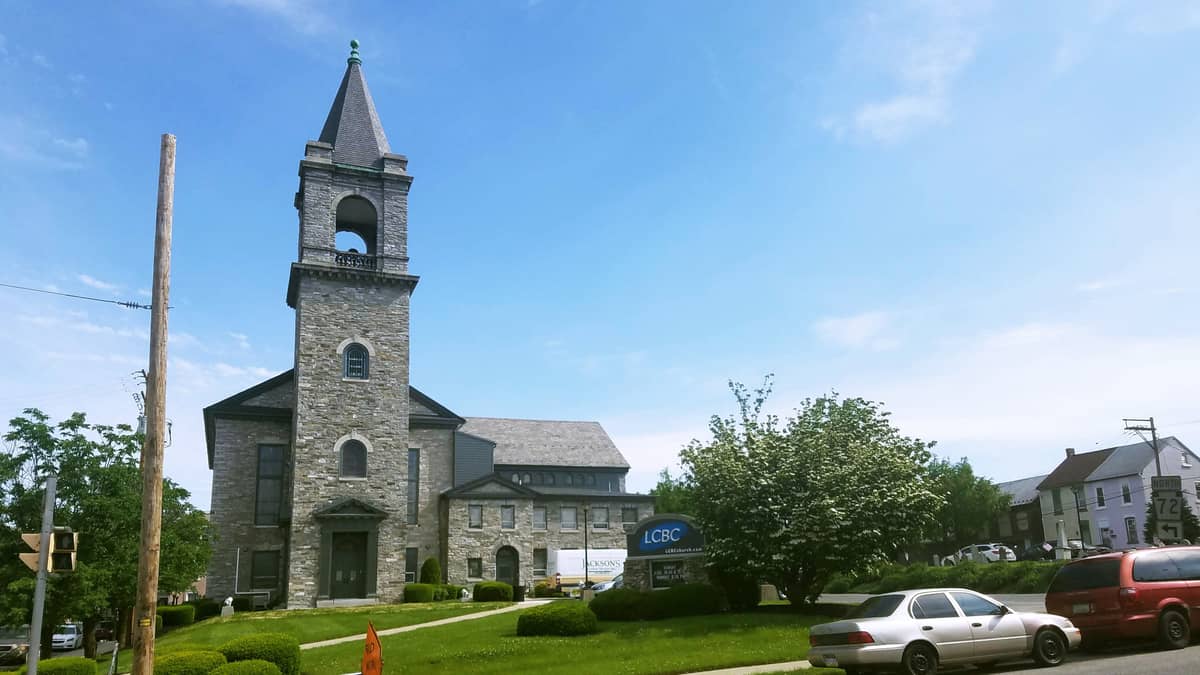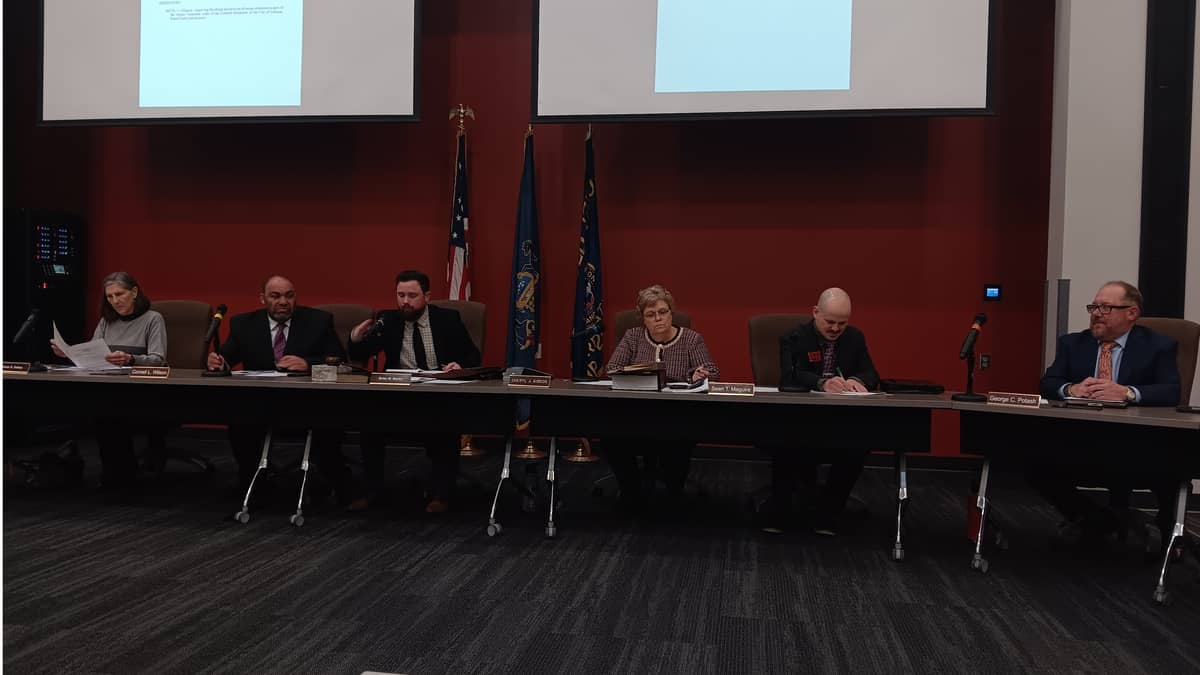What is Tabor Day? For Lebanon citizens, the beautiful stone church at 124 South 10th Street likely needs no introduction. But the story behind one of its longest-standing June traditions is deeply connected to the founding of Lebanon itself.
Biblically, Tabor is one of the accepted names for the mountain on which the Transfiguration of Jesus Christ took place, a New Testament event in which Christ became bathed in radiant glory before several disciples. Mount Tabor is located in Israel and is also the namesake of many other Tabor buildings, groups, and places around the world.
Lebanon’s Tabor Church began as a wooden two-bell structure occupying a corner of what would become the current-day property. This was built and named Tabor in 1762, two years after George Steitz granted three church officials a plot of land in exchange for five shillings and the “payment of one red rose in the month of June forever.”
In reference to this unusual payment, the Tabor Church is also known as the Red Rose Church, as the tradition of the June rose has been celebrated through the years. Descendants of George Steitz (along with the many other variations on the Steitz name) would travel to the Church on the first Sunday of the month to receive the rose from church officiants.

Steitz, of course, was the founder of Steitztown, a settlement that would later be renamed Lebanon. Incidentally, it is thought that Steitz, who died in 1767, is buried somewhere within the Tabor cemetery, though no gravestone bearing his name has been found, according to a 1975 Lebanon Daily News article.
In 1777, during the Revolutionary War, the church served as a holding place for two hundred Hessians. The Hessians were German mercenaries under the control of the British government. Later in the year many of the foreign soldiers escaped, sneaking out in the wartime winter without a trace.

The multipurpose church also became an educational institution. Church pastors tended to double as community educators to young boys. John Gloninger, owner of one of the oldest Lebanon homes, the Gloninger estate, was taught by the church’s pastor for much of his education. Gloninger would go on to serve a number of roles in the burgeoning governments of Lebanon and Pennsylvania, including a representative in the General Assembly, a State Senator, and a Lebanon County associate judge.
Gloninger is, naturally, buried in the Tabor cemetery as well.
1792 saw the original wooden church become irreparably damaged by a lightning storm, spurring the construction of a limestone building the same year, which would be completed by 1796. Following this, a tower was added to the building in 1827 (making it the tallest building in Lebanon at the time) and the construction of the current building began in 1844. The bottom three stories of the tower date to the 1827 construction.
Finally, the currently-standing chapel addition would be built in 1914, replacing an earlier brick chapel built in 1872.

In recent times, the Tabor building has been renovated and is currently holding service, thanks to the Lives Changed By Christ organization of churches, based in Lancaster. LebTown covered the change in ownership back in January.
The legendary Tabor rose rental agreement has been fulfilled year after year, the traditional date of rental being June 10. However, this year, it will not be held, according to LCBC Pastor Matt Stoltzfus. In an email, Stoltzfus stated: “With the transition from Tabor to LCBC there has not been a request made from the family to hold a ceremony this year.”
Although the Red Rose tradition may not continue, those familiar with the church’s origin and development are not likely to forget it anytime soon – it is just the newest chapter in a rich and storied history.

























